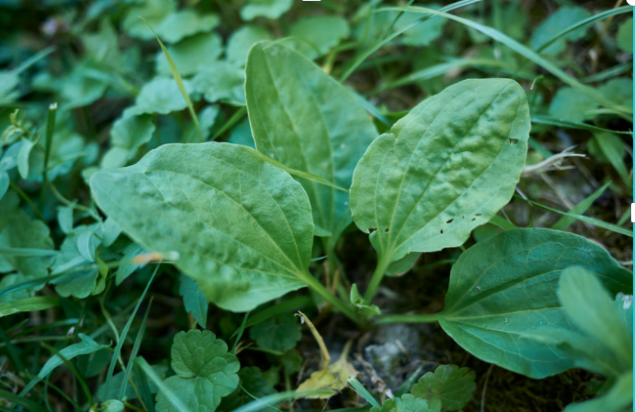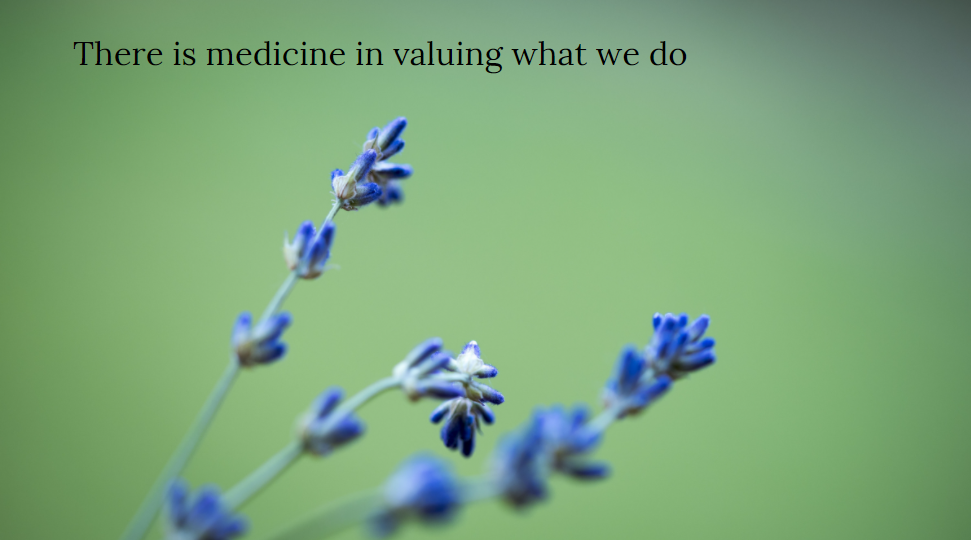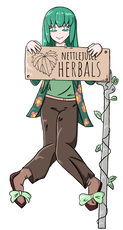|
The following post was first published in 2012 on my previous blog. I was inspired to share with folks how I treat minor burns in my own family. Enjoy. Burns can be so painful. And often the way we treat them, including how we bandage and clean them, can lead to even more pain. Herbs can not only help our minor burns heal faster, but greatly decrease the pain involved as well. Minor burns, first and second degree, can be easily treated at home if you are prepared. The first thing to do is cool the burn. This can be done by plunging the burned area into cool or cold water for a few minutes. If you have a bottle of aloe vera juice in your refrigerator, that's even better. Just pour the juice into a bowl and cool the burned area in the juice. Once the burn is cool, I like to cover it completely with a good burn salve. This will keep the air away from the burn, keep it moist and get those burn healing and soothing herbs right in there to start their work. Put the salve on thick. (Many folks will advise against using a salve, or any oil-based medicine, on a burn. The reason is that oil will trap heat in the burn causing pain and damage to persist. This is absolutely true... if you haven't cooled the burn completely first. However, once the burn is cooled, applying a salve will protect the tender flesh from exposure to the air, thus reducing pain, while at the same time administering healing and cooling herbs to the wound.) Before I bandage a burned area I cover the area with a wilted plantain leaf. You can do this by picking a large plantain leaf (if you can find some that don't get mown down, they get quite large), putting it in a bowl and pouring boiling water over it. Allow it to soak for a couple minutes. They remove it and allow it to cool completely. When it is cool, wrap the leaf over the wound and then bandage it on. The plantain leaf will keep the bandage from sticking to the wound (which can be painful when pealed off and also undo some of the healing as it rips of newly forming skin), and helps in soothing the wound as well. By the time everything is wrapped up, there should be a great feeling of relief. Remove the bandage after 12 hours, now you can use a gauze pad to gently pat the wound if you need to remove dead material or loose skin. Do not rub! Any white, gooey stuff is new skin growing, so let it be. Then re-apply your burn salve, nice and thick, and wrap in another wilted and cooled leaf before bandaging. Repeat this process every 12 hours and your burn will heal up very quickly.
Third degree burns, or burns covering very large portions of the body need to be treat professionally do to the risk of infection and dehydration. For very mild burns or light sunburn, I like to use a burn spray I make myself and keep in the refrigerator consisting of Aloe juice and lavender essential oil. This spray is so lovely and cooling, and really speeds the healing of sunburn. My favorite herbs for including in burn salve recipes include...
Using herbs in our treatment of burns can go a long way in reducing pain and speeding the healing process. What are your favorite herbs for treating burns? Let me know in the comments below. If you liked this post you see more content about practical ways to use herbal medicine in your life over at my Patreon page, An Herbalist's Journal. Click on the button below and scroll down to see posts available to the public. Patrons of the page also receive weekly posts send to their inbox, as well as monographs and access to live classes on plant medicine. See you there.
2 Comments
Today I got a phone call from a local customer. This person has purchased medicine from me in the past (though very infrequently). She knows me and what I do. She was looking for a hard-to-find plant medicine for an issue she is dealing with and asked if I had any prepared. I told her that I did, that it was very high quality and stronger than a regular strength tincture (it was a soxhlet extract), so she would need far less for each dose. She asked the price and I told her $15 for a one-ounce bottle. She immediately told me that it was too expensive. I told her that it is more than I charge for a regular tincture, and again explained that she would need less per dose and so the bottle would last her roughly 3 times as long. She did not buy from me. It’s OK. Maybe she will find it elsewhere for cheaper. That is not to say that I don’t give discounts or even gifts on occasion. But here is the thing… This is my work. This is my job. It has expenses, labor, education, plus my heart and soul poured into it. I’m proud of what I do, and I love this work too. (Is it OK to charge money for doing something you love? Hell yeah! I wish everyone could love what they do and thrive doing it too.)
|
AuthorApril Coburn, herbalist and founder of Nettlejuice. Archives
July 2023
Categories |
Search by typing & pressing enter



 RSS Feed
RSS Feed
